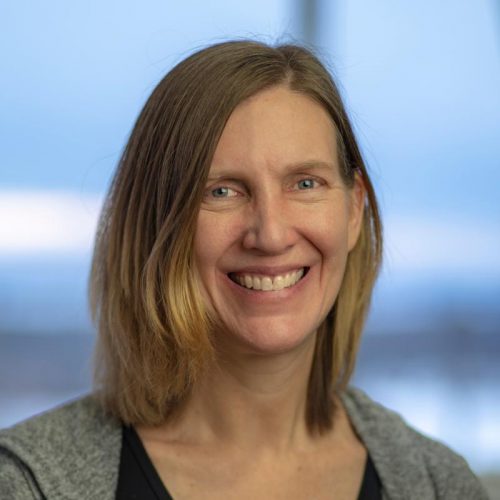Laura Conner selected as science education Fulbright specialist
March 8, 2021

Laura Conner, a research associate professor of science education in the Geophysical Institute and the College of Natural Sciences and Mathematics, was competitively selected last month for the prestigious Fulbright Specialist Program.
The specialist program is organized by the U.S. Department of State with partners in 157 participating countries. Each year, more than 400 Fulbright specialist scholars apply their expertise worldwide for a period of two to six weeks at hosting institutions, with a specific focus on the cultural exchange of ideas, education and training.
“I think it’s really important for people to have cross-cultural understanding, and immersing yourself in another culture, even on a short-term basis, is the best way to go about doing that,” said Conner.
Now that Conner has been selected as a specialist, she will have the opportunity to be placed on a project that an overseas institution has defined as important to their mission.
During her time at UAF, Conner has specialized in making science education as widely accessible as possible, both in Alaska and across the country.
In 2015, she was awarded over $1 million in grant funding from the National Science Foundation for the project BRIGHT Girls — Budding Research Investigators in Geosciences, Habitat and Technology. Through the grant, Conner helped organize local summer academies for high school girls to learn about biology, ecology and modern remote sensing techniques and studied how the girls become part of a science community of practice.
“Things like identity are part and parcel of learning, and a lot of my research looks at how girls and members of other groups underrepresented in science come to identify with science,” said Conner.
Conner is currently the principal investigator for another collaborative project that’s received a $3 million grant from NSF ($1.7 to UAF) and is funded through 2022. Called “Fostering STEAM," the project is led by researchers in multiple U.S. institutions that work with informal educators to equip them with the tools needed to foster the integration of art and science in their communities.
Conner and several colleagues also recently co-designed a science teaching and outreach certificate in which graduate students in a science discipline at UAF can gain experience in pedagogy, science communication and mentoring.
The certificate offers an immersive experience in which, aside from taking classes, students gain hands-on experience by working at local K-12 schools, museums and science centers or in college classrooms to promote active learning. Students who complete the certificate also design an entire college-level course from start to finish, giving them a competitive edge when entering the academic job market.
“It’s an opportunity for students to earn a credential that shows they’ve paid attention to pedagogy and that they know something about teaching,” said Conner.
Conner was specifically selected as a science education Fulbright specialist and is excited about the possibility of sharing what she’s learned through her own completed and ongoing projects.
“The host institutions can be universities, but they can also be cultural centers, like museums,” said Conner. “So I could potentially work with a museum or another entity to help them design STEAM projects. If I got partnered with a university, I could help them design a graduate certificate in science teaching and outreach or help design a project evaluation on student learning outcomes.”
Fulbright specialists are usually added to the roster for a total of three years; however, due to the disruption caused by the COVID-19 pandemic, Conner will remain on the roster for four years. During that time, hosting institutions will have the opportunity to request Connor’s participation on new or existing projects.
For more information, contact Laura Conner, UAF Geophysical Institute and the College of Natural Sciences and Mathematics, at ldconner@alaska.edu or 474-6950.


